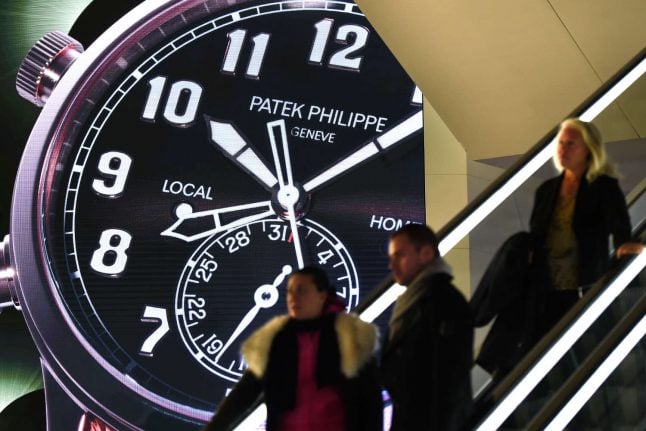p.p1 {margin: 0.0px 0.0px 0.0px 0.0px; line-height: 14.0px; font: 12.0px Helvetica}
Here are some of the most important changes that you need to know about.
Paper foreigner ID cards phased out
From November 1st, 2019, the paper-based foreigner ID cards which are currently issued to foreigners in Switzerland will be replaced.
New ID cards, made out of plastic in a credit-card shape, will resemble those in neighbouring European Union countries.
The paper-based IDs will remain valid, but will be replaced by the newer IDs when they come up for scheduled renewal.

The old Swiss ID is being phased out.
The cost associated with the IDs is set to remain the same.
The Swiss government has said the new IDs will be more secure while they will be easier to administer.
READ: Switzerland approves phase out of paper-based residence permits
November holidays
For many of us, the sight of the calendars turning over to November means we’ve only got a couple of months until the holiday season.
In some Swiss cantons however, the party can start earlier – with November 1st a scheduled public holiday for All Saints Day.
All Saints Day is observed in 15 of Switzerland’s 26 cantons, while some cities also celebrate the holiday. All Saints Day is celebrated in Aargau, Appenzell Innerrhoden, Fribourg, Glarus, Jura, Lucerne, Nidwalden, Obwalden, St. Gallen, Schwyz, Solothurn, Ticino, Uri, Valais and Zug.
Climate strike
The changing of the seasons over the past few years has driven home a (not so) cold reality – that winters in Switzerland and elsewhere aren’t quite what they used to be.
READ: Climate change set to cost Switzerland CHF1 billion per year
As a result, climate strikes are set to heat up across the country. While there are actions planned for the entire month of November, the major event will take place on November 29th. Over 100 cities are set to take part in the coordinated protest.
The clocks (or at least the hard-to-reach ones that haven’t been changed already)
For most Swiss waking up on the last Sunday in October, the usual Sunday morning confusion was added to by daylight savings changes.
While most mobile phones and computers would have wound back automatically, watches, clocks and other time-keeping devices would have needed manual intervention.
And although some of these can be a tad difficult or even impossible – most of us threw away the manual for our microwaves a long time ago – November is really the time to get all your time-keeping devices in line, lest you add to the winter confusion.

DIMITRIOS KAMBOURIS / AFP
It might be one of your last chances to do so, considering that the European Union has shelved daylight savings from 2021 – and Switzerland is thinking of doing the same.
Although there has been decades of debate and discussion surrounding daylight savings in Switzerland, the Federal Council indicated it would be likely to follow suit with neighbouring EU countries in order to avoid confusion.
Let’s go shopping
With Christmas just around the corner, it’s probably time to turn at least a bit of your attention to the necessary (and perhaps unnecessary) shopping.
Black Friday is catching on across Switzerland, giving anyone who’s organised and prepared enough the chance to save.
p.p1 {margin: 0.0px 0.0px 0.0px 0.0px; line-height: 14.0px; font: 12.0px Helvetica}
p.p2 {margin: 0.0px 0.0px 0.0px 0.0px; line-height: 14.0px; font: 12.0px Helvetica; min-height: 14.0px}
p.p3 {margin: 0.0px 0.0px 0.0px 0.0px; line-height: 14.0px; font: 12.0px Times; color: #0000e9; -webkit-text-stroke: #0000e9}
span.s1 {text-decoration: underline ; font-kerning: none}
Black Friday takes place on November 29th, with plenty of local retailers as well as larger department stores and mail-order providers on board.



 Please whitelist us to continue reading.
Please whitelist us to continue reading.
Member comments